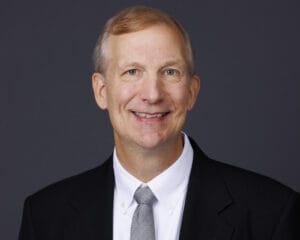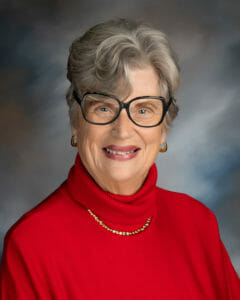

Forget the debate over alternative vs. traditional fuels. The smart leader is going to find out what powers Leah Klusch and pay to corner the market on that.
Long-term care has no better example of passion for getting it right, and helping others get it right, than Klusch. The popular founder of the Alliance Training Center, the 80-year-old had an extra charge in her step after the release of the 2025 Medicare Part A payment rule last week.
That’s saying a lot.
Leah wants you to give her a call in the next 40 minutes, her office emailed me after I had asked for comments from the woman who first helped the government write regulations nearly 60 years ago.
I punched in her number and she immediately answered and dove into observations that she felt could help her caregiving sisters and brothers around the country. The only time constraint on this segment of her impromptu teaching? Well, she would still be at the hospital for about a half hour while she completed yet another blood transfusion she was getting for the cancer that has subjected her to chemotherapy for nearly a year.
Really.
Asked if she would be OK with that personal information circulating, she quickly responded in the affirmative: “Sure, Let ‘em know I’m doing OK. I’m proud of my fight.”
Another reason why, when Leah talks, you should listen carefully. Thousands wisely have throughout the years.

Referring to a McKnight’s story headline she read about the newly proposed pay rule at 5:30 that morning, she declares: “CMS didn’t just get a big stick. CMS got a hatchet because of what they’re proposing for the way the fines are going to be set!”
Yes, she’s concerned about what the Centers for Medicare & Medicaid Services has in store for skilled nursing providers via the proposed pay rule.
“What happened is they’re changing the lens on the microscope they’re going to use to look at the data that creates the payment,” she explains.
A lot of facilities are still sloppy with the accuracy of their data and data formulation processes, she says. Many, if not most, providers still need to get in line with new MDS procedures that were instituted in October.
Only 40% of them are doing what was newly required six months ago, she estimates. Knowing her diligence, by next week, she’s liable to be able to report on the other 60%..
Strong MDS coding, for which Klusch is an undisputed master teacher, is lacking in too many buildings, she frets. Many facilities are losing base pay on multiple patients every day. New patient mood interviews are missing the mark, costing unobservant providers $44 to $48 per patient per day, she declares as just one example. Extrapolate the math on that for 10 or more patients per day, she says with equal doses of worried mother hen and drill sergeant.
Then there are providers’ ongoing shortcomings in functional performance scoring. The math adds up to more bad numbers there unfortunately.
Klusch has known this since at least November, when frazzled provider execs started calling, bewildered about their shrinking reimbursement checks.
Things are liable to get worse for providers who don’t do their homework, or make sure their data processes are reproducible, she reminds. Senior management is ultimately responsible for all of these things, she adds.
A 2023 McKnight’s Pinnacle Awards winner who danced up to and around the stage when accepting her award, Klusch unapologetically wears her passion on her sleeve. Even when it’s punctuated by a beeping IV tube, feeding new life into her arm.
Then again, one might wonder: Could that hook-up have been a reverse process, where they’re actually pulling some of the good stuff out of her in order to infuse it in others?
One can only hope.
James M. Berklan is McKnight’s Long-Term Care News’ Executive Editor.
Opinions expressed in McKnight’s Long-Term Care News columns are not necessarily those of McKnight’s.




